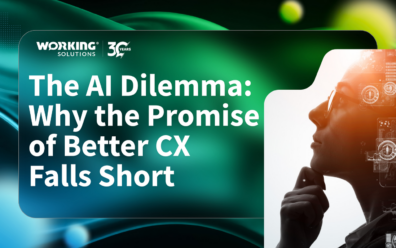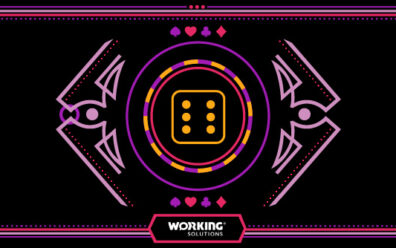Contact Center Operations Contact Center Security Contact Center Technology Industry Insights1.5-minute read
Call Center Security Tips
Updated on: February 21, 2025
Security Fundamentals
In an information-driven era data security tops the list of importance in any contact center. Billy West, our vice president of information technology, provides some insight and a few fundamental tips on protecting data and privacy in call centers.

Start smart. End secure.
For me, four words sum up call center security best: Start smart. End secure.
Here are five call center tips to follow:
- Stay updated – Software security isn’t like a fine wine. It doesn’t get better with age. It has to be updated to correct vulnerabilities in current and older versions. Consider this: Citing IBM-sponsored research, FORTUNE stated in 2016: “On average, the cost of a breach has risen to $4 million per incident—up 29% since 2013.” You can bet that subpar software is involved somewhere.
- Use unique passwords – Change them. Often. At least every 90 days if you really want to ward off hackers, at home and on the job. Ensure they’re unique. Better yet, make them “ugly”—ones their own mothers wouldn’t recognize—or want. If you need a picture, check out this Entrepreneur password-protection infographic. A couple of years old, its points remain relevant today.
- Do dual-factor authentication (2FA) – Multiple levels of security trumps one. The 2FA sign-on process involves a user name, password—plus a cryptic piece of information, such as a token. It’s not even a new technology, patented 34 years ago. Think of it this way, burglars break into less-secure places. Fewer locks, lights, alarms. Less work. Hackers are no different. Opportunistic thieves, looking for easy access. Increased defenses dissuade them.
- “Vaccinate” with anti-virus – Have you gotten your flu shot yet? If not, you’re not only vulnerable to that sickness, but worse things to follow. Same with anti-virus to safeguard against those malware-hosting URLs. Poor policing upfront promotes bigger problems later. As Forbes reported last year: “Anti-Virus Still Has An Important Role to Play In Cybersecurity.” With a firewall, anti-virus provides an excellent barrier against attacks.
- Don’t click on email links – Tempted, aren’t you? But don’t click on that email link. Only the Good Lord and the hacker know where it will take you. And take you, it will. “We know that humans can be exploited and they fall for the same thing all the time,” said Dr. Zinaida Benenson, from the University of Erlangen-Nuremberg. Savvy as she is, according to Business Insider, “even this expert on hackers got tricked into clicking a scam email” at a Black Hat conference. So, be ever-aware.

Let us help you secure an on-demand workforce
Contact us.
This Might Interest You...
Manage Consent
This website uses cookies to personalize and improve your experience. Continue browsing our site if you agree to our Cookie Policy or feel free to Manage Cookies yourself.
Functional Always active
The technical storage or access is strictly necessary for the legitimate purpose of enabling the use of a specific service explicitly requested by the subscriber or user, or for the sole purpose of carrying out the transmission of a communication over an electronic communications network.
Preferences
The technical storage or access is necessary for the legitimate purpose of storing preferences that are not requested by the subscriber or user.
Statistics
The technical storage or access that is used exclusively for statistical purposes.
The technical storage or access that is used exclusively for anonymous statistical purposes. Without a subpoena, voluntary compliance on the part of your Internet Service Provider, or additional records from a third party, information stored or retrieved for this purpose alone cannot usually be used to identify you.
Marketing
The technical storage or access is required to create user profiles to send advertising, or to track the user on a website or across several websites for similar marketing purposes.


